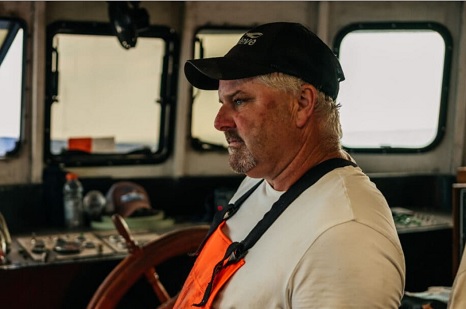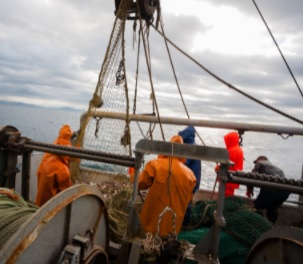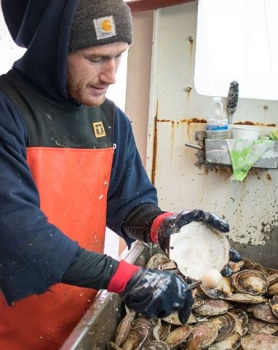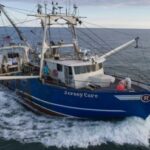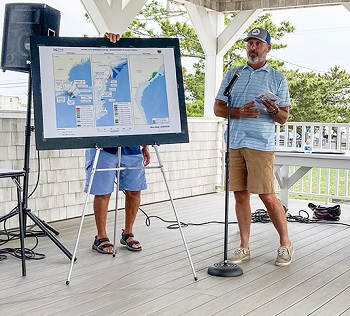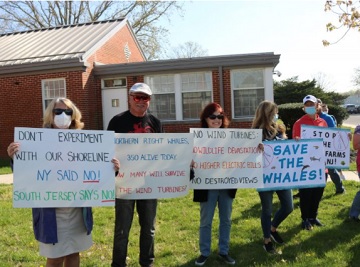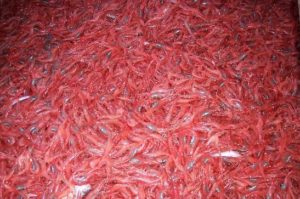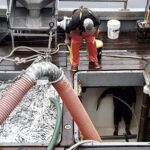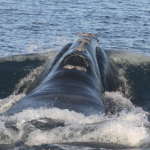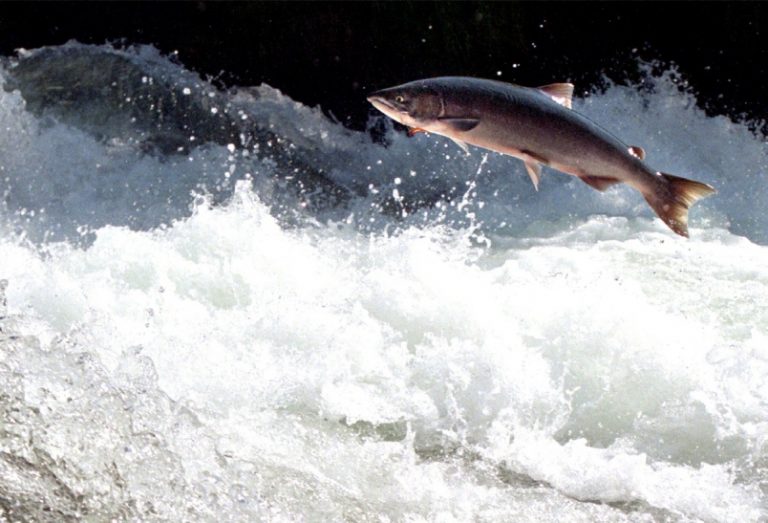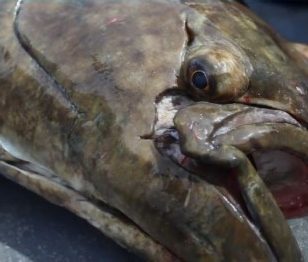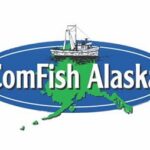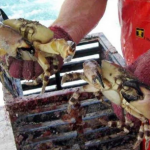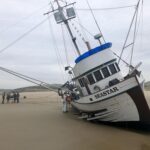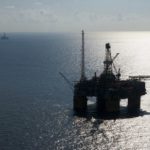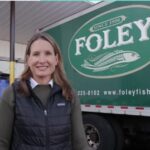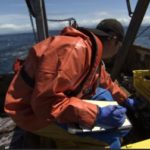Tag Archives: commercial fishing industry
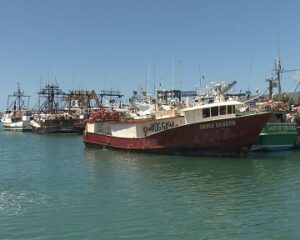
Hawaii fishermen on the hook for high costs as seafood prices continue to rise
You may be seeing trouble when you pull out your wallet to pay for fish and seafood, but it’s the fishing industry that’s threatened right now. As fisherman Paul Dodder prepares to once again head out to sea. Expenses are on his mind. “Fuel prices are always the number one expense,” said Dodder. Diesel fuel we’re told is up 50%. But there are other costs as well. “Baits and supplies for your crew, all of that has increased 40%-50%,” said Hawaii Longline Association Executive Director Eric Kingma. Those costs on top of increasing demand are driving prices up. Video, >click to read< 19:34
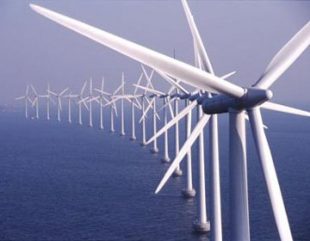
Biden-Harris Administration Sets Offshore Energy Records with $4.37 Billion in Winning Bids for Wind Sale
The Department of the Interior announced the results of the nation’s highest-grossing competitive offshore energy lease sale in history, including oil and gas lease sales, with the New York Bight offshore wind sale. These results are a major milestone towards achieving the Biden-Harris administration’s goal of reaching 30 gigawatts of offshore wind energy by 2030. Today’s lease sale offered six lease areas totaling over 488,000 acres in the New York Bight for potential wind energy development and drew competitive winning bids from six companies totaling approximately $4.37 billion. >click to read< 08:15
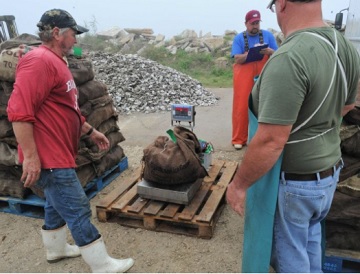
Alabama: Seafood bill raising questions about tax breaks pitched to lawmakers
For Ernie Anderson, the legislation that passed out of the Alabama House last week will help a dwindling number of commercial fishermen save costs while purchasing equipment to do their jobs. Problem is, no one seems to know how much that is. The bill, HB10, allows the entire commercial fishing industry similar tax exemptions and reduced tax obligations like those offered to farmers, who pay 1.5% on sales taxes. Commercial fishermen, excluding commercial shrimpers, currently pay a 4% sales tax rate whenever they purchase equipment like netting and bait. >click to read< 14:01
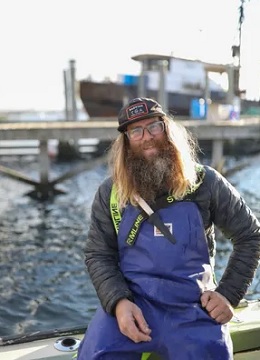
Newport Rhode Island’s commercial fishing industry faces challenging times
“Different? How are things different? Just look at it.” Gazing out over the water toward downtown Newport from a dock on Long Wharf, Denny Ingram, the burly captain of Blue Moon, is answering my question with a question. “Nothing’s the way it used to be. Nothing.” We’re standing on the last remaining pier dedicated to the city’s commercial fishing industry. The view is crowded with pleasure boats, mid-rise condos and high-end hotels. When Ingram started fishing nearly 40 years ago, the scene was quite different. Today, all of the businesses serving the commercial fishing industry have evaporated. You can’t even get ice locally. >click to read< 17:21

New Jersey – Coastal towns go to court seeking more input on offshore wind
The suit alleges that the Biden administration’s plans to lease 480,000 acres off the coasts of New Jersey and New York for offshore wind development violate two key environmental protection laws, the U.S. National Environmental Policy Act and the U.S. Endangered Species Act by essentially bypassing them. As a result, the projects are moving forward without consideration for their impact on endangered species living in the area of the proposed turbines, as well as the state’s commercial fishing industry and local tourism along the Jersey Shore, according to the suit. >click to read< 10:30
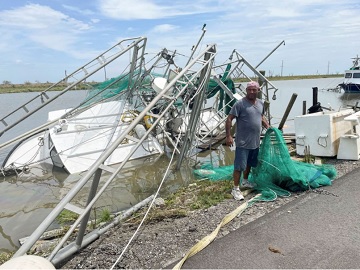
Louisiana Fishing Industry Suffered $579 Million in Damages Due to 2020-21 Hurricanes
Hurricanes Laura, Delta, Zeta, and Ida, which swept through Louisiana during various points in 2020 and 2021, resulted in an estimated $579 million in losses to the state’s fisheries infrastructure, revenues, and biological resources, according to a study by the Louisiana Department of Wildlife and Fisheries, LSU and Louisiana Sea Grant. The study’s findings, released today, analyzes monetized losses to fisheries infrastructure (including vessels), sales or gross revenue, and resources losses to fish and oysters. The study also projects financial losses that are continuing into 2022. >click to read< 10:14

Fishermen, residents voice concerns about proposed Morro Bay offshore wind farm
An area of ocean 20 miles from the Cambria shoreline and about 35 miles northeast of Morro Bay could become home to nearly 400 square miles of wind turbines,,, Many, like Cheri Hafer, are concerned the area will prohibit commercial fishing. “One of our biggest enemies right now is industrialization of the ocean,” Hafer said. “Not just to fishermen, but to the marine habitat.” Larry Thevik, a dungeness crab fisherman, said many fishermen feel like their concerns aren’t being heard and that the impact it may have on the commercial fishing industry isn’t being thoroughly considered. >click to read< Public critical of environmental analysis for Morro Bay Wind Energy Area – A number of public speakers at an offshore wind energy impact analysis scoping meeting said a full environmental impact statement should be prepared before the federal government leases tracts in an area northwest of Morro Bay. But officials with the Bureau of Ocean Energy Management said a full EIS can’t be conducted on the effects of wind turbine installation,,, >click to read< 12:12
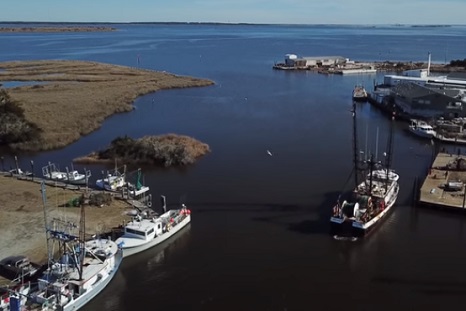
Safeguarding the Outer Banks’ commercial fishing heritage by supporting the livelihoods of local fishermen
Dare County has released a video titled, “Dare County’s Commercial Fishing Industry: Safeguarding the Community’s Longstanding Heritage by Supporting the Livelihoods of Local Fishermen,” as part of the county’s ongoing effort to inform members of the public as well as state and national legislators about the impact that increased regulation is having on the those who work within the commercial fishing industry. >Video, click to read< 10:11
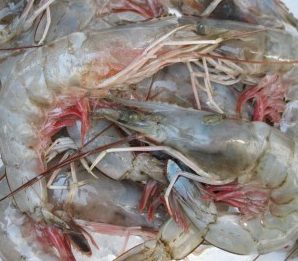
A “shot across the bow”: Shrimp trawl decision was a close call for consumers
After two days of public hearings during which few participants voiced any support for the proposed closures, the commission voted 5-4 to include an additional 10,000 acres to the existing 1 million acres already closed to shrimp trawling. Ostensibly the proposed closure, had it been approved, would have shut down approximately 119 small independent commercial shrimpers whose vessels, ranging 35-50 feet in length, are too small to trawl in the open ocean. But, as the large number of speakers noted during the Marine Fisheries Commission meeting noted, the closure would have far greater impact. >click to read< 09:19
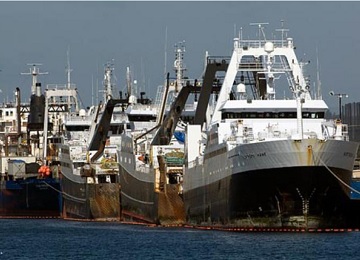
An inside look at Seattle’s fishing industry
This unique network of professionals, ranging from shipbuilders to pipe fitters to marine electricians and more helps fuel the local economy and offers a range of career options. When fishing fleets, based at the Port of Seattle’s Terminal 91 on the Seattle waterfront in Interbay, return laden with their catch, a single ship might carry fillet blocks, loin blocks, surimi, roe, fish meal and fish oil, says Kelli Goodwin, senior manager, Maritime Operations at the Port of Seattle. These products are separated and loaded into export carriers, on-site freezer cold storage, rail cars (for fish oil) or long-haul trucks for domestic distribution. “The next fish stick or fish fillet sandwich you eat, likely was caught by a vessel that calls Seattle home,” >click to read< 14:05
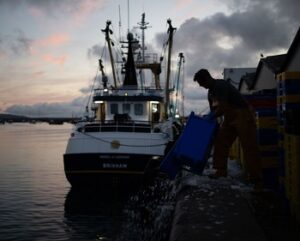
England’s biggest fish market at sunrise – Brixham Fish Market is truly the city that never sleeps
At the meek hour of 2am, boxes upon boxes of fish are being sliced, sorted, and shipped, generating thousands in revenue before the sun has begun to rise. The hours are gruelling with 4pm starts that don’t end until the next morning and some boats that land at Brixham spend seven days out at sea.,, “Brixham is a fish town. Tourists love to come here, they love to see the boats, they love to see the market. Despite being one of the worst-hit industries by Brexit and Covid, the market is currently experiencing a boom and earning figures of up to £800,000 in some weeks. 22 photos, >click to read< 09:00
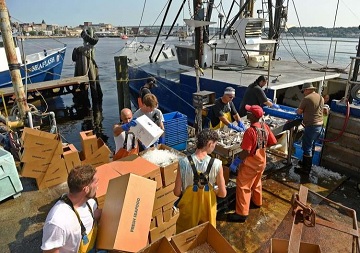
Fishing fleet lives a productive but unstable existence in New London
The 96-foot trawler Mystic Way is back home from a four-day stint at sea and its crew is unloading a 35,000-pound haul, using a crane to swing to shore containers overflowing with whiting and a variety of other fish species. The crew members join with dock workers to move the fish, shovel ice and pack the fish into hundreds of wax-coated boxes. A teen on a forklift hauls the pallets of boxes into an awaiting refrigerated truck headed to a fish market in New York. Workers are tired and sweating but focused on moving the fish out of the summer heat before too much of the ice melts. Overseeing the operations at Fisherman’s Landing is Gary Yerman, 71, owner and president of New London Seafood Distributors and one of the two men credited with bringing this modern-day fishing fleet to New London. >click to read< 08:20
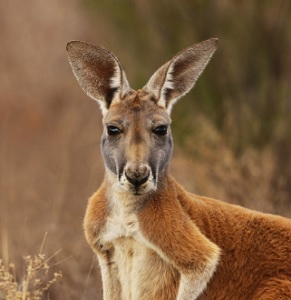
Commercial fishing reforms come into play across South Australia
South Australia’s much-anticipated $24.5 million reform of the marine scalefish fishery officially went into effect on July 1. The state government says changes will strengthen the long-term financial and ecological sustainability of the commercial fishing industry. Changes include a trading system where fishers can exchange and bid for quotas to catch certain species, as well as new zones and other regulatory changes. The changes have not come without some disruption, as the government bought out licence holders. For example, as many as half of Kangaroo Island’s commercial marine scale fishermen decided to surrender their licences. Late last year, applications for nearly 130 commercial fishing licence surrenders had been received in the state government’s reform of the marine scalefish fishery. >click to read< 07:44

Leaked document reveals Govt’s proposals to reform New Zealand fishing industry
Proposals to vastly increase marine protections in the ailing Hauraki Gulf and ban trawling in all but “carefully selected” corridors have been revealed in a leaked document. The document also outlines Oceans and Fisheries Minister David Parker’s proposals to reform the New Zealand commercial fishing industry, including progress on the rollout of cameras on commercial vessels. The document, produced for the Labour Party’s Infrastructure and Environment Committee, outlines a suite of papers to be taken to Cabinet that will “underpin the Government’s work on Oceans and Fisheries”. It was reportedly leaked to the Act Party and published online. >click to read13:15
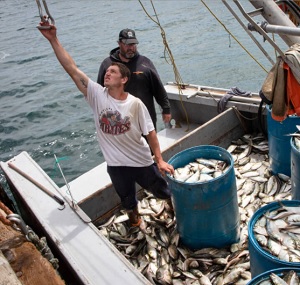
Maine: Pogie fishing season gets underway
Russell Libby turned to his crew at CBS Lobster and Bait on Union Wharf on Monday afternoon, telling them another boat was due in five minutes. Libby also told them it was close to sinking. That turned out to be an exaggeration but not by much. Before long, a small fishing boat came chugging around the corner. The Deja Vu II was so loaded with pogies, the open transom was several inches underwater. The crew was jubilant. “That’s the most I’ve had on there in 20 years,” said Capt. Dan Harriman of Cape Elizabeth. Dozens of plastic barrels stood stacked on the vessel’s deck. What little open space remained was awash in fish. The crew stood ankle-deep in them. Even the engine compartment was full of pogies.”We’ve got some down forward — we really do,” crewman Corey Doughty shouted up to the dockworkers. >click to read< , or here! 11:21
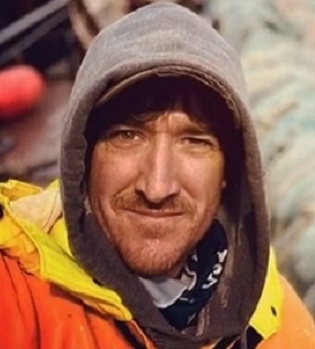
Home in Maine, Fisherman Taylor Strout reflects on the Alaska commercial fishing industry during the pandemic
From Maine, it takes him a good 24 hours and four airports to get where he is going. Taylor Strout is a mate aboard the Fishing Vessel F/V Northern Defender which was tied up at the dock in Dutch Harbor. As the crow flies, he is more than 4000 miles away from home. What is the draw? “It’s kind of a different level of fishing out here. And it was something that I’ve always wanted to do and try back when I first got into it. I had the opportunity to do it, and to try it, and I didn’t just try it, I ended up kind of falling in love with it. And continue to do it since. I love the rotation of it. You know, you go to work, you work hard, you put it in there, and then when it’s time to go home and focus on your family you get to come home and just be Dad and take care of the family that way too,” says Taylor. >Video, click to read< 12:50

Few assurances for fishermen in federal offshore wind approval
Offshore wind developers have assured the commercial fishing industry all along that the thousands of massive turbines that they want to install in the ocean up and down the East Coast won’t block fishermen from waters where they make their living. But the final approval issued this week for Vineyard Wind 1, the nation’s first major offshore wind farm, offers few guarantees to commercial fishermen. Take for instance this passage from the Army Corps of Engineers in the Record of Decision for the 62-turbine project that would be built off the coast of Rhode Island and Massachusetts: “While Vineyard Wind is not authorized to prevent free access to the entire wind development area, due to the placement of the turbines it is likely that the entire 75,614 acre area will be abandoned by commercial fisheries due to difficulties with navigation.” >click to read< 16: 36
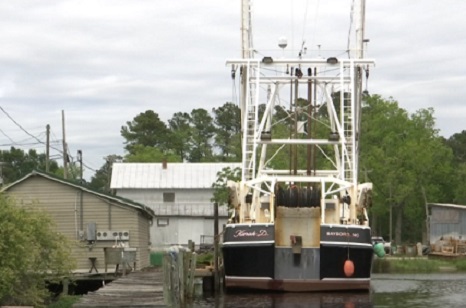
North Carolina Commercial Fishermen can’t stay afloat under biased regulations
Many commercial fishermen feel like they’ve been playing defense for a decade, fighting for their livelihood. “It’s a hard day to fight when you get up and you know you’re fighting for your survival every day, and you’re regulated to the point where you can barely make it,” said Doug Cross. Cross runs Pamlico Packing Company with his brother.,, The storms and bad seasons come with the territory, but there’s another issue tangling these nets. “Regulation is the single biggest wild card,” said Cross. “How do you plan in the future without knowing what you’re going to be facing. >click to read< 17:00

We’re losing fishing grounds – Trump says Vineyard ‘will never be the same’ after Vineyard Wind Farm
Will Vineyard Wind, the nation’s first permitted commercial-scale wind farm, change island life in Massachusetts forever? Former President Donald Trump thinks so. On the day that the massive wind farm planned off the coast of Martha’s Vineyard and Nantucket won the federal approval from the Biden administration that it had been fruitlessly seeking from Trump for years, the former president weighed in with a touch of sarcasm. The project, however, still has opponents, including the commercial fishing industry and some environmentalists worried about how the farm will impact the migratory patterns of rights whales and other marine life. >click to read< 10:01
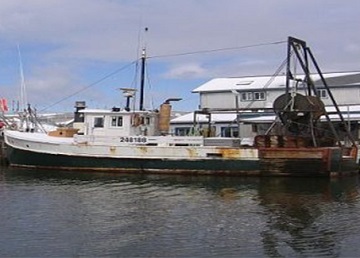
A push to boost commercial fishing industry, post-Coronavirus on Long Island
With the pandemics, the industry suffered on Long Island as restaurants all but shut down, wiping away an important client base for commercial fishing. As the economy continues to reopen, Suffolk County has launched a survey aimed at developing a real-time snapshot of the Long Island commercial fishing industry, which officials say has been “especially hard-hit by the COVID-19 pandemic,” according to a press release from the county. The survey is available here. The information and data collected through the survey will highlight the needs of local fishermen and will guide and assist agencies in providing the resources necessary to continue to support a viable and sustainable fishing industry. >click to read< 11:48
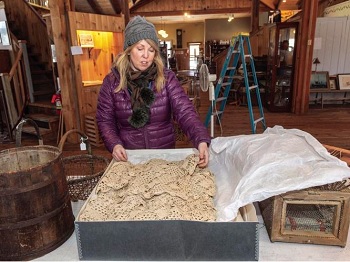
South County Museum honors the legends of the Point Judith commercial fishing industry
Imagine walking into a new exhibit at the South County Museum that lists as many local commercial fishermen as can be identified, past and present, and features stories of notable fishing families, artifacts of the fishing industry, a parade of historic photographs on large video screens, and even an oral history booth where present-day fishermen and their families can tell their stories. “Point Judith was once the No. 2 commercial seaport on the East Coast, and it needs to be celebrated and show how it’s changed. Commercial fishermen are the most adaptable, industrious individuals who are running a business, but are also doing it because it’s a passion in their life.”>click to read< 12:38
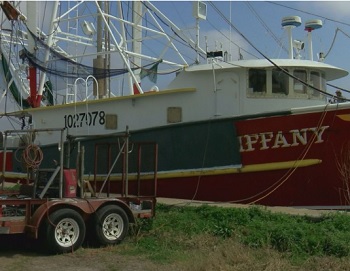
Mississippi Commission on Marine Resources talk Bonnet Carré Spillway, CARES Act funding
Many fishermen got some help from that $1.5 million of CARES Act money that was granted to the state of Mississippi, with most of that going to the seafood industry. $734,222 of that money went to local commercial fishermen, $451,284 went to seafood dealers and processors, and $239,179 of it went to the charter boat fleet.,, At Tuesday’s Commission on Marine Resources meeting, Joe Spraggins, Department of Marine Resources executive director, explained the process of how $21 million in Bonnet Carré Spillway relief funding will get to those in the industry. >click to read< 18:25
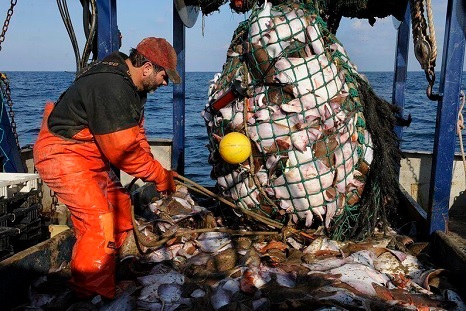
The Voices of Gloucester Fishermen: NOAA offers virtual trip through Gloucester fishing history
The voices speak to the experience of living and fishing in America’s oldest commercial seaport, of the challenges and the joys of working on the waters of Cape Ann and beyond. They are at once a snapshot and endurable timeline collected into recorded interviews and fashioned into an 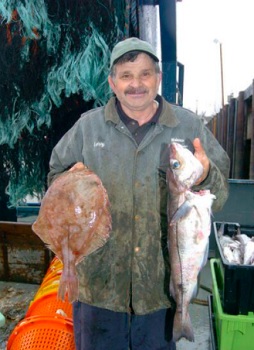 integrated story map of the Gloucester fishing and community experience. The stories and the voices which tell them are contained in the newest online chapter of the Voices of Oral History Archives organized and produced by NOAA Fisheries’ Northeast Fisheries Science Center. It’s titled “Strengthening Community Resilience in America’s Oldest Seaport” photos, video, >click to read< 11:55
integrated story map of the Gloucester fishing and community experience. The stories and the voices which tell them are contained in the newest online chapter of the Voices of Oral History Archives organized and produced by NOAA Fisheries’ Northeast Fisheries Science Center. It’s titled “Strengthening Community Resilience in America’s Oldest Seaport” photos, video, >click to read< 11:55
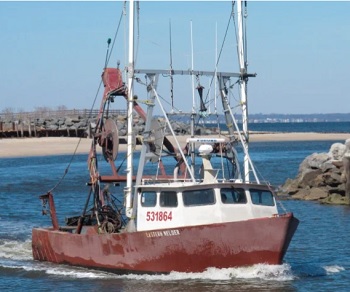
NJ Fishing Community Says Coronavirus Aid Helped Keep Them Afloat
With New Jersey’s commercial fishing industry about to receive a second round of federal coronavirus aid, boat owners and those who run fishing-related businesses say the extra money is helping keep them afloat amid a sea of red ink. The state’s fishing industry received $11 million last March under the CARES Act, an early aid bill passed in response to the COVID-19 outbreak. And it should get roughly the same amount under a second bill passed by Congress in December.,, U.S. Rep. Frank Pallone Jr. said Monday. Pallone held a news conference Monday at the Belford Seafood Cooperative in Middletown with boat owners and those who run related businesses. >click to read< 10:24







